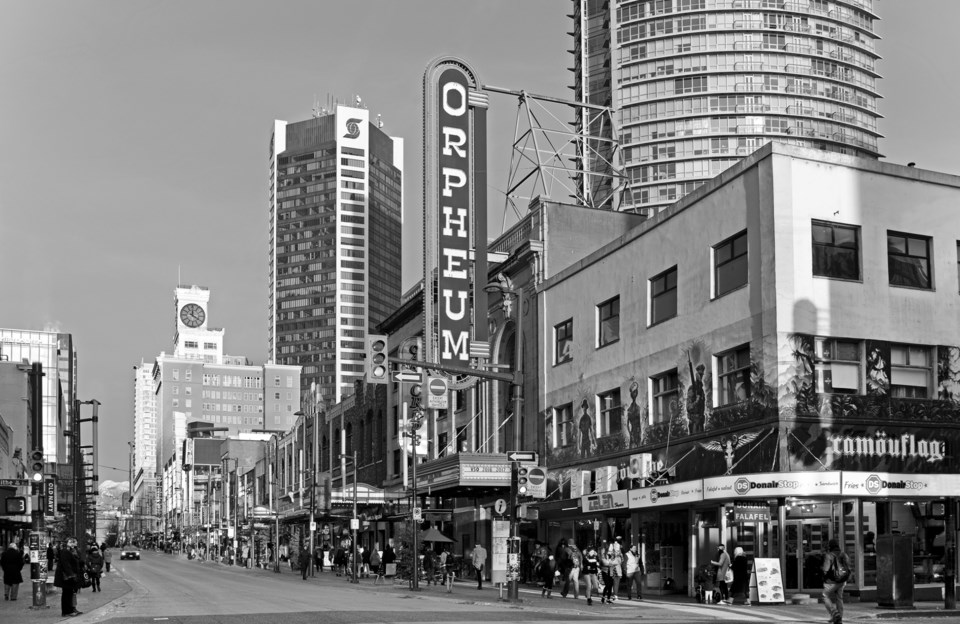Perhaps I’m sentimental (I am), or showing my vintage (51). But the hollowing out of neighbourhoods in the Lower Mainland has me feeling sad about our city, and pondering where we’re headed.
It’s a crisis of community, and it can’t wait.
Last fall my head spun at the story of Dulux Paints on West Broadway. This longtime Kitsilano business was basically decimated by BC Assessment’s “highest and best use” policy, which appraises (and eventually taxes) land based on what could be there, rather than what actually is.
After 50 years at Broadway and Arbutus, they saw their property taxes increase from $187,000 to $209,000 between 2017 and 2018. As if that wasn’t enough, they were told another $16,000 increase was coming.
In 2019, the tax on their 5,135 square foot store was going to be $225,000. They shut it down.
Unacceptable. This land value + “highest and best use” tax = unfair. No?
Many speculate that this ‘hit’ was largely due to already rising values across the Broadway Corridor, in preparations for the Millennium Line’s Broadway extension and future Arbutus Station. That might play into things, but we’ve seen “upzoning” impact businesses all over. The West End kitchen shop; the family owned and operated restaurant on Robson; the list grows daily.
Taxation is killing neighbourhoods. With costs like this, there are no incentives for small businesses to try and make a go of it in Vancouver or the Lower Mainland.
Instead, we are overrun with those who CAN pay: big names, banks, pharmacies, and questionably flush dollar stores. How is that better?
I spoke with Kris Sims, BC Director of the Canadian Taxpayers Federation, and asked how this might be fixed.
“Tax the property for what it actually IS, not what it might magically be. Also enact a law similar to Proposition 13 in California, so that a property is taxed on the value it was bought for, and a sale tax only kicks in when it is SOLD.”
Kris went on to say, “Constantly jacking up the taxes on a building that is not for sale, based on what it might be sold for one day, often punishes long-term tenants, and businesses that have been cornerstones of neighbourhoods for many years.”
As a born and raised Vancouverite my memories of these “cornerstones” are vivid. A place of unlocked doors, knowing all neighbours by name, kids playing in the streets, shopkeepers keeping tabs on teens sneaking a smoke.
Vancouver was filled to the brim with community, yes, even the downtown core. Vancouverites of that time fondly remember the adventure of lunch at Woodward’s food court on Hastings, Two dollar Tuesday at the Capitol 6, or cruising Robson on a Saturday evening with windows down and music up. It seemed that everybody knew everybody.
As a kid, walking West Broadway with my grandmother was akin to a daily visit with extended family. The baker knew her order upon entry, the butcher was astutely aware of her tight budget and would offer a nod and a wink toward the best deal. Hell, even the bank manager looked out for her best interests.
Today it is so different. Everything seems empty – sold out, or priced out – corporate, branded, and unaffordable.
Unlocked doors are gone forever – but where do we begin our journey back to Community? How do we help small businesses from shuttering due to remarkably unfair tax practices?
While BC Assessments have delivered great news for many homeowners watching their nest egg grow, for small businesses skyrocketing land value is increasingly launching them out of business.
Taxes are a reality of life, yes, but how they are calculated and collected shouldn’t handcuff us based on “maybes.”
Jody Vance is a born and raised Vancouverite who’s spent 30 years in both local and national media. The first woman in the history of Canadian TV to host her own sports show in primetime, since 2011 she’s been working in both TV and radio covering news and current affairs.



